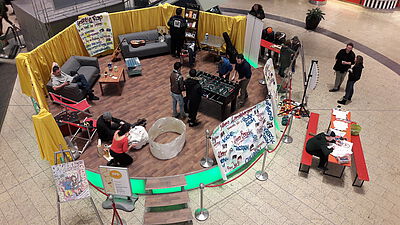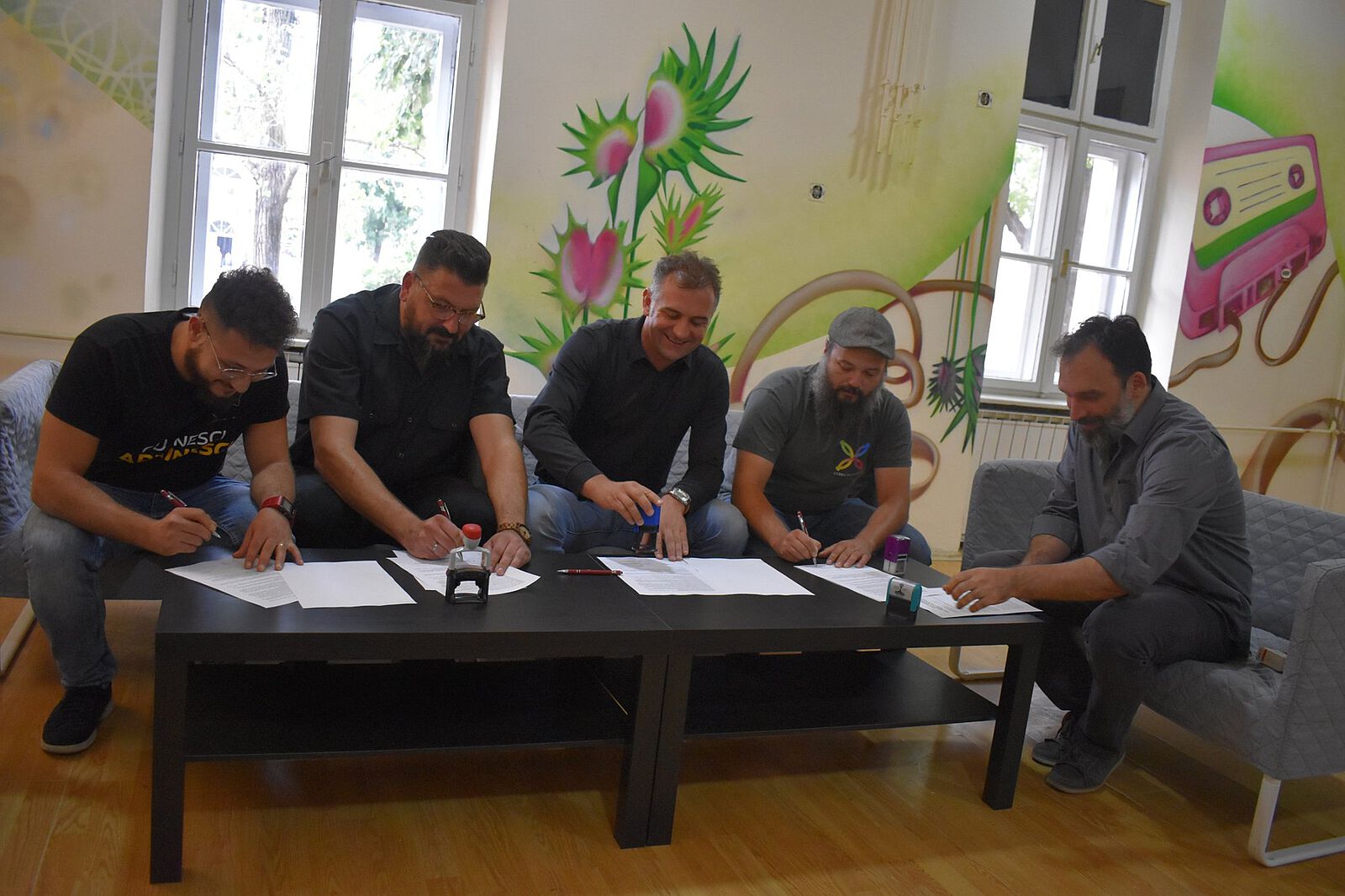"Open Youth Work For Open Society - Give A Chance To Informal Youth Centres"
A project in strategic partnership between 5 youth centre promoters
The project idea
The term "youth centres" describes a place where young people can meet, develop their skills and work together. However, there is a very different understanding between the different regions and legal frameworks of the context and framework for services, support and implementation of activities.
The partners involved in this project agree that open youth work, in particular, has a special role to play in supporting the personal development of young people. This is done in particular through a participatory and self-determined approach that enables young people to recognise and satisfy their own needs.
We want to promote the idea of youth centres in which young people can meet informally (also called open youth work), spend leisure time, receive support through counselling and develop their own ideas. From this starting point, the youth centres, together with the young people, develop extracurricular educational activities in the field of their interest. In this way, young people are involved in the decision-making process, which leads to greater participation in projects. It is also the creation of a youth-friendly atmosphere which is relevant to young people and their interest in information in which young people are interested. We firmly believe that this approach is useful for all young people and that it is a very inclusive way of working with young people. Our experience is that for young people who find it difficult to adapt to a formal framework (school, vocational training, etc.), participation in informal and non-formal activities can be a step towards a better future or even back to formal education.
Many countries still do not offer open youth work in this sense (OYW) and even in the countries they have, it is very often the playground for economic savings in the national budget. It is therefore necessary to promote the idea not only among social workers and youth workers, but also among society and political actors.
It is important to ensure sustainable funding, joint recognition and development of quality youth work in order to strengthen youth organisations and their role in integration, participation and non-formal education through the exchange of innovative methods and experiences in working with young people.
In order to achieve this goal, we would like to present the different perspectives of the participants. These are the perspectives of young people, youth workers and social scientists. We will collect and evaluate scientific studies, collect, develop and publish good examples of successful open youth work and publish young people's ideas about what open work should achieve and how it should be equipped.
In a second step, we will develop three argumentation tools for open youth work.
The first is aimed at decision-makers and administrations. It summarises the opportunities and results of open youth work and places them in a context of positive social development. This is done in detail and is aimed primarily at specialist politicians and the specialist departments of local authorities. A summary in the form of a short information brochure is given to all parliamentary decision-makers. The second contains recommendations for action for universities in order to sharpen and improve the profile of youth workers in open youth work. Both are discussed with representatives of the respective target groups and tested for their practical applicability.
The third argumentation aid is aimed at citizens. It is intended to offer media content produced by the partners together with their young people. These can be pictures, Youtube videos and sound files, which comprehensively and creatively present open youth work and make it understandable.
With all components an extensive dossier develops, which does not exist in this form so far. It will be available online in English and in all languages of the participating partners (Germany, Italy, Romania, Serbia and Slovenia). In addition, we provide the option of contributing your own translations.

